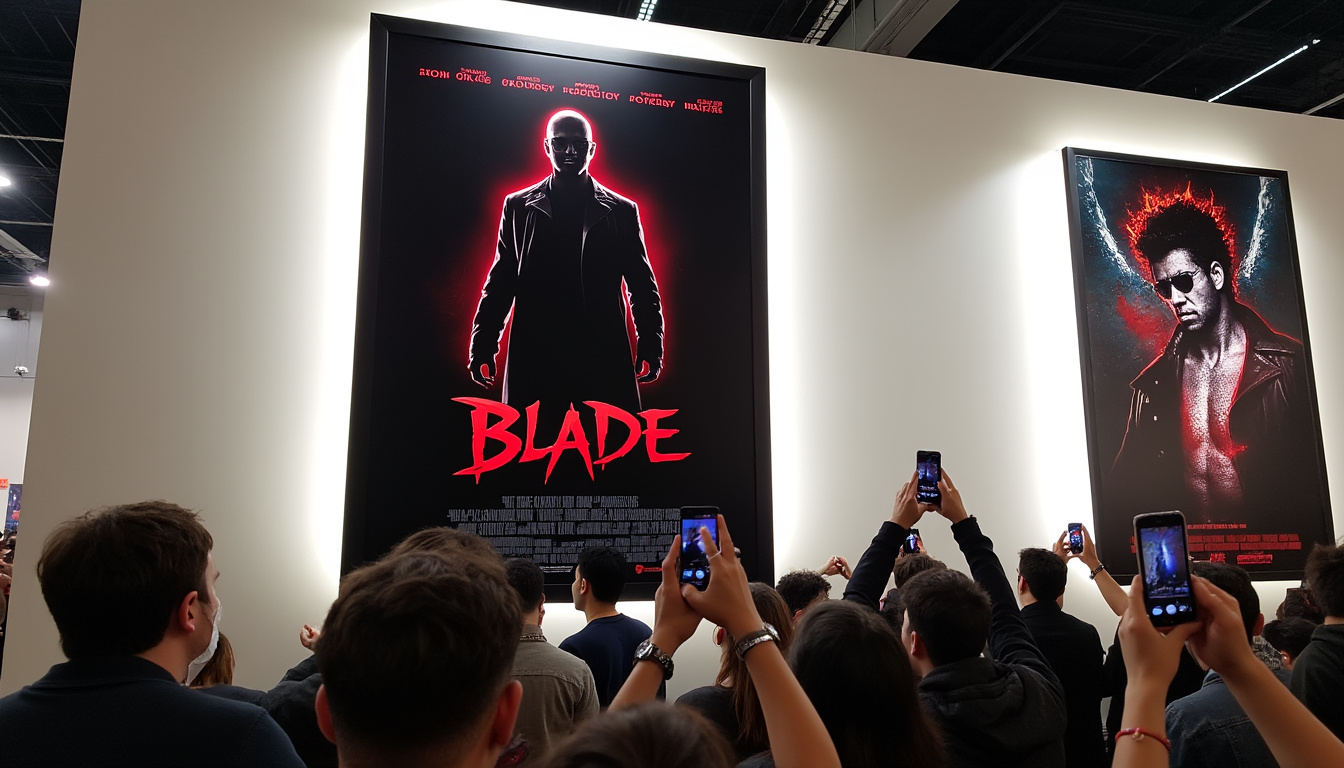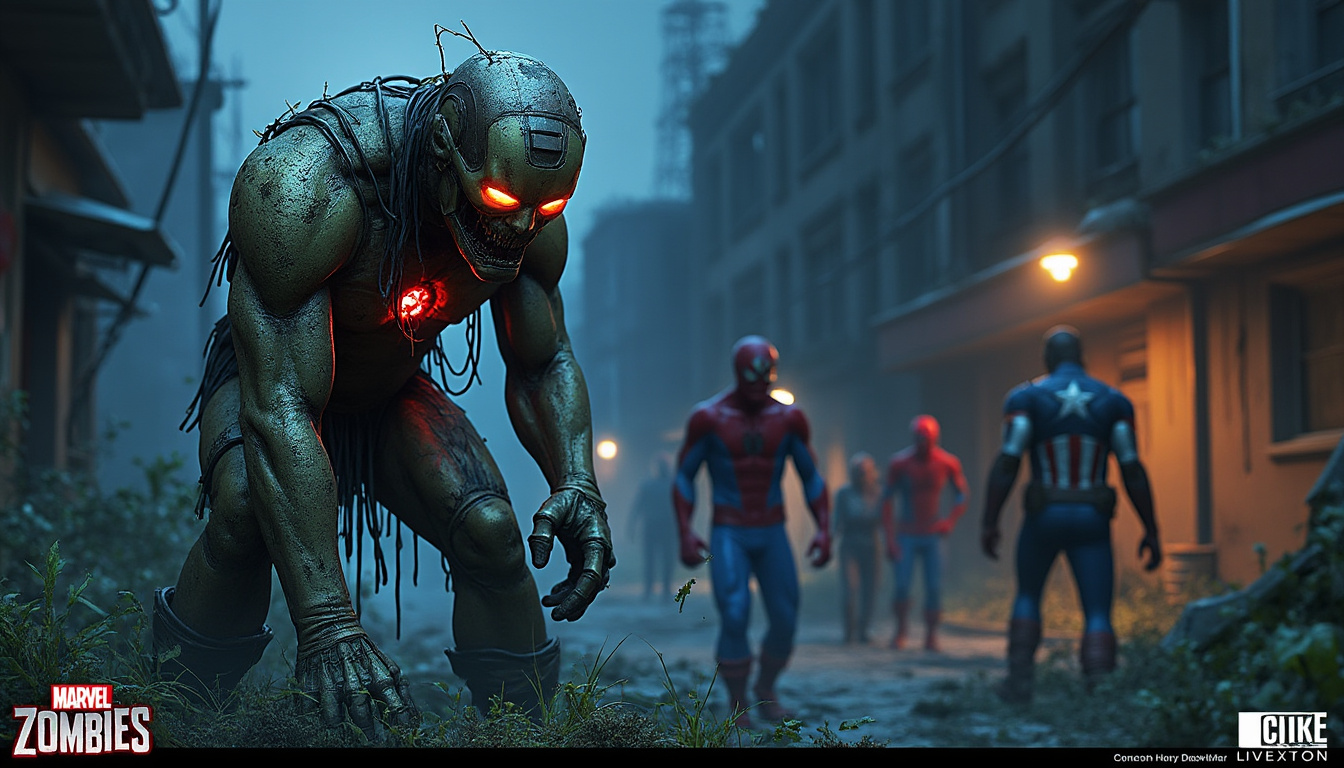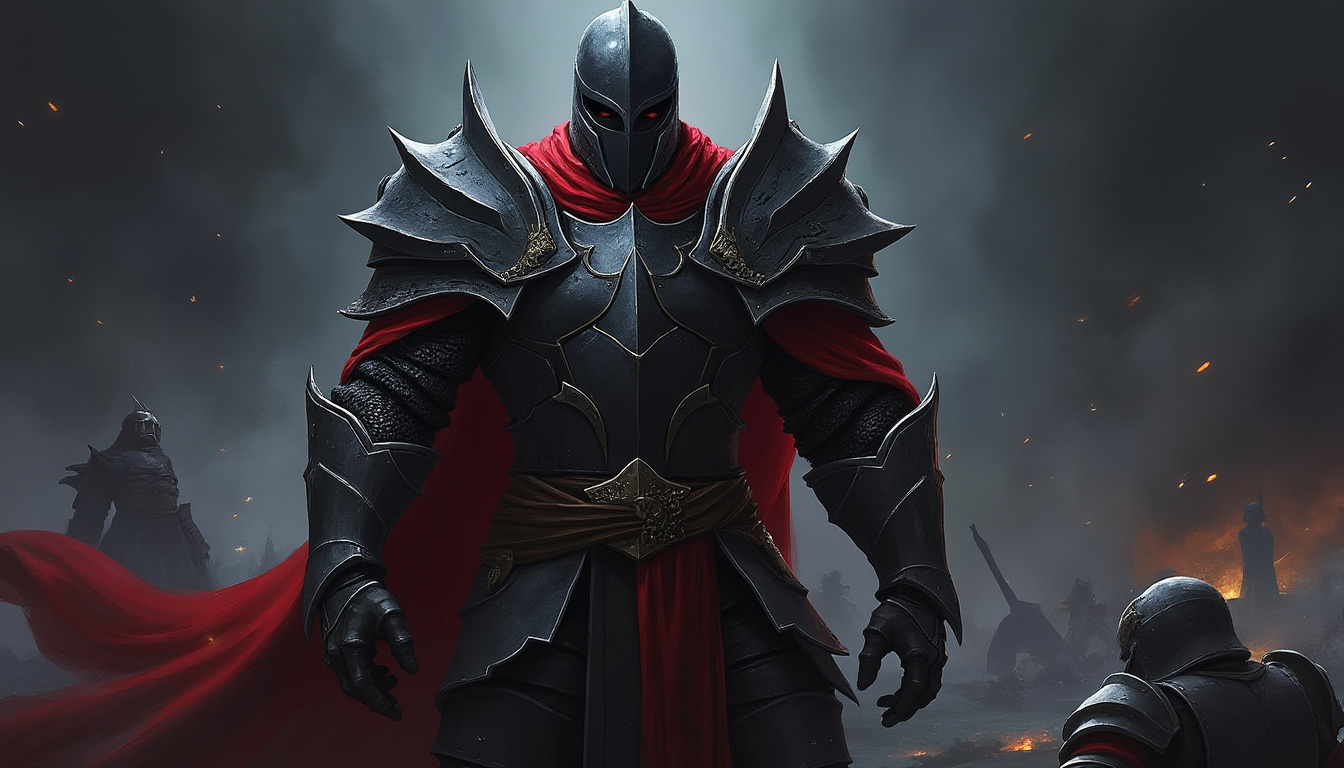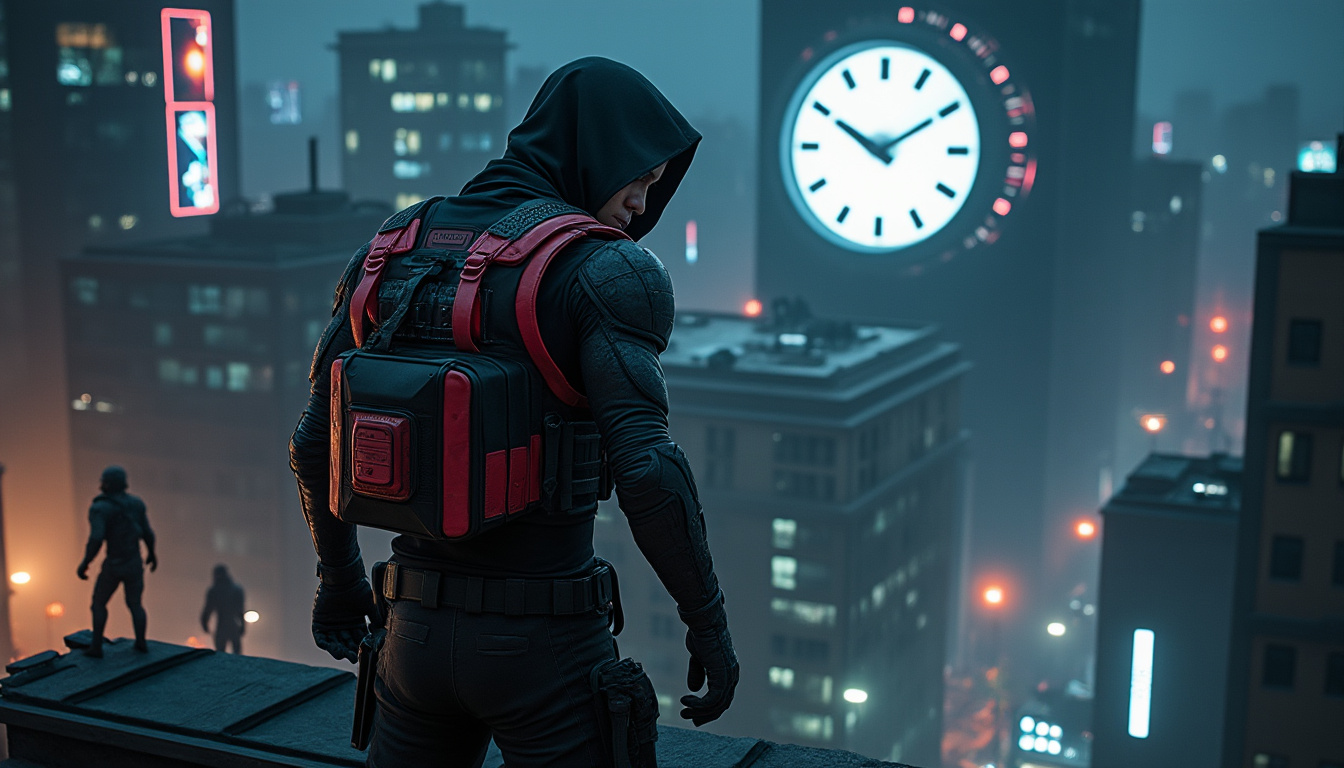The long-awaited return of Blade into the Marvel Cinematic Universe (MCU) has been a highly anticipated event among fans and critics alike. Initially announced at Comic-Con in 2019, the film was slated to see Mahershala Ali take on the titular role, following in the footsteps of the iconic performance by Wesley Snipes in the earlier Blade trilogy. However, production has faced a tumultuous journey filled with delays, director departures, and various creative setbacks. Despite the uncertainties surrounding its release, these delays have inadvertently provided a unique opportunity within the Marvel landscape, particularly impacting the upcoming Marvel Zombies series.
Blade’s Rocky Road to the MCU
The development path for the Blade reboot has been far from smooth. Following its announcement, numerous factors contributed to a series of production challenges that have left fans both frustrated and intrigued. Marvel Studios has expressed confidence in the project, but the hurdles have been a significant discussion point within the fan community.

Initially, Blade was set to pave the way for a darker tone in the MCU, aiming to delve into the realm of horror and supernatural elements within the superhero genre. However, as Marvel delved deeper into the saga of the multiverse throughout Phase Five, the narrative complexity surrounding the MCU became overwhelming. The intricate timelines, character arcs, and the ever-expanding universe appeared to hinder progress on the Blade project. The departure of key directors and scriptwriters only exacerbated the situation, leaving fans wondering if Blade would ever grace the big screen.
To better understand the challenges, it is essential to look into the reasons behind the project’s delays. Some key factors include:
- Creative Differences: The vision behind Blade went through multiple revisions, as different directors brought their ideas to the table. This creative tug-of-war led to setbacks in the overall direction of the film.
- Casting Decisions: After casting Mahershala Ali, there was an increased focus on ensuring the character’s portrayal aligned with both his talent and the intended representation of the character.
- Integration with the MCU: As the MCU expanded its narrative framework, Blade had to find a way to harmoniously fit within the larger storylines, especially given its darker themes.
Fans have been eagerly awaiting updates on the film’s potential release date, but with 2025 approaching and no confirmed timeline, uncertainty continues.
How Blade’s Delays Shaped Marvel Zombies
Intriguingly, the delays surrounding Blade have inadvertently led to exciting developments in another Marvel project, Marvel Zombies. This animated series is based on the popular comic series and aims to explore a dystopian world where superheroes have succumbed to a zombie plague. Initially, there were plans for a Blade character to be introduced in this series. However, the slow progression on the Blade film prompted Marvel to pivot and reimagine a new character within this universe.

Brad Winderbaum, a key figure in the production of Marvel Zombies, explained how these delays were beneficial to the show’s development. The creative team felt a pressing need to ensure that the animated series could stand independently without relying heavily on the release of the live-action Blade. Consequently, they introduced Blade Knight, a unique variant of Eric Brooks—a human-vampire hybrid infused with new lore connected to the character’s ties with Moon Knight and the Fist of Khonshu.
The concept of Blade Knight brought several innovative advantages:
- Enhanced Creative Freedom: By developing a character that diverged from the live-action plans, the Marvel Studios team found opportunities to infuse new storylines and background into Blade Knight.
- Broader Character Exploration: Blade Knight can explore different themes and rivalries outside of the already established lore pertaining to the original Blade character, ultimately expanding the universe in intriguing ways.
- Integration with Existing Characters: With the character now being a Fist of Khonshu, Blade Knight can interact with other notable figures within the MCU, enriching the narrative of both the character and the zombie apocalypse.
Marvel Zombies is set to premiere on Disney+ on September 24, 2025, offering fans a unique opportunity to see a new interpretation of beloved characters while celebrating the horror elements that Blade embodies.
The Unique Character of Blade Knight
Within the context of the future Marvel Zombies series, Blade Knight represents a rich tapestry of potential storylines. By marrying familiar traits from Blade with a new narrative arc and character dimensions, audiences can expect an exciting addition to the animated universe. Blade Knight isn’t merely a replication of Blade; instead, he serves as a fresh lens through which to explore the conflict between good and evil—a prominent theme in many superhero tales.

In essence, Blade Knight encapsulates a blend of human vulnerability with vampiric strength. This duality is pivotal in drawing parallels to themes already established in the MCU. For instance, Moon Knight’s storyline revolves around mental struggles, and integrating Blade Knight into this mix can lead to compelling episodes that navigate complex themes such as identity, morality, and resilience.
The Lore Behind Blade Knight
The backstory for Blade Knight presents an intriguing opportunity to elaborate on his relationship with other Marvel characters while building on the established mythos. Drawing from the original Blade principle, the character could evoke various emotions and confrontations typical to both heroism and villainy. Some possible arcs that Blade Knight could explore are:
- Redemption Arc: A storyline that showcases his confrontation with past mistakes and the search for redemption—an evolution that audiences frequently seek in modern storytelling.
- Alliances with Other Heroes: Collaborating with other notable figures such as Moon Knight could open doors for team-up stories that invigorate the MCU’s expanding character network.
- Cultural Representation: Featuring a vampire hunter who also embraces different nuances from his human side can create a representation that resonates with a broader audience.
These storytelling avenues highlight the potential for Blade Knight to emerge as a symbol of resilience amidst chaos, much like the superheroes we’ve come to admire throughout the MCU’s journey.
The Long-Term Effects of MCU Delays
The implications of delays within the MCU extend beyond individual projects, shaping the broader cinematic landscape. The postponement of Blade offers more than just a new character in Marvel Zombies; it presents an opportunity to reconsider how superhero narratives are constructed in light of audience expectations and shifting storytelling paradigms. With the rapid evolution of the superhero genre, analyzing the long-term effects of these delays can unveil critical insights into Marvel’s strategy moving forward.
These delays act as a stress test for the MCU, challenging creators to rethink connections between characters, plot, and overarching themes. With a more complex multiverse narrative, engaging with the consequences of timing can lead to better storytelling overall. Here are some considerations that are emerging as a byproduct of such delays:
- Character Development: Delays can allow writers and directors to flesh out characters deeply, ensuring they resonate with audiences in meaningful ways.
- Improved Pacing: The opportunity to analyze story pacing can lead to a more engaging viewing experience—balancing action with character moments.
- Creative Risk-Taking: With the time afforded by delays, creators might be encouraged to take risks, introducing unconventional story arcs that can yield fresh perspectives.
In a landscape saturated with superhero content, these factors can play a pivotal role in distinguishing MCU offerings from their competitors while mitigating the risks of audience fatigue.
The Future of Blade and Marvel’s Cinematic Landscape
As audiences prepare for the eventual embrace of Blade in the MCU, the debates around its delays and the emergence of characters like Blade Knight speak to the potential for greater creative explorations. Marvel’s ability to pivot and adapt demonstrates resilience amid challenges, ensuring that even the most anticipated projects have the potential for unexpected benefits.
The evolving landscape of the MCU promises to weave together various narratives, essential for maintaining audience engagement in the era of streaming. While current delays create uncertainty, they also foster unique opportunities for storytelling that might not have emerged otherwise.
With series like Marvel Zombies leading the way, the MCU continues to invite collaboration, innovation, and redefinition of beloved characters. The time invested in both Blade and its adjacent projects will ultimately enrich Marvel’s legacy, offering fertile ground for rich storytelling and exploration of heroes without capes in a world rife with complex moral dilemmas.


